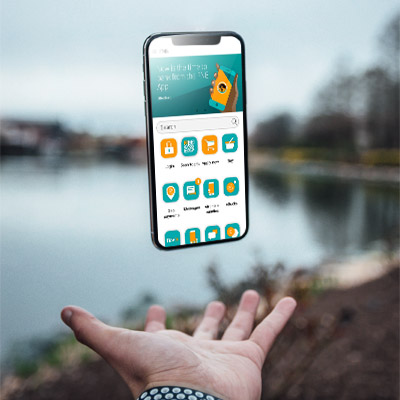
How to choose the right renewable energy solution for your small business
Kyle Durham, Head of Alternative Energy Solutions at FNB Business
October 2020: Against the backdrop of a weak economy, businesses face further challenges when it comes to sustainable power supply.
According to the 2020 CSIR Energy Report, South Africa will likely to face an energy shortage for at least the next 18 months while the South African Reserve Bank affirms load shedding is at its worst this year, with the total gigawatt-hours shed surpassing the 2019 record in August.
"The reality is that power interruption is hitting small and medium-sized businesses particularly hard. The power outages cause productivity declines, which translate to lost revenue. Renewable energy is a sustainable solution for the future," says Kyle Durham, Head of Alternative Energy Solutions at FNB. Wise counsel from Durham is that for a business to survive and thrive in the years ahead, it is essential to invest in an alternative power solution.
Durham provides the following advice for choosing a renewable energy solution:
- Selecting a supplier
The first thing is to search for a reputable supplier. In doing so, it's best to choose a solar installer once you've reviewed their certifications, licenses, track record and reputation in the market. Wido Schnabel, chairman of industry body, the South African Photovoltaic Industry Association (SAPVIA), says one ideally wants a supplier with a strong South African presence. "This means you are looking for a company with an office and staff in South Africa so that you know you will have strong after-sales support," he advises.
Schnabel suggests that you appoint an independent consultant at the outset to guide you through the process. "FNB's Alternative Energy Solutions can help in this respect, in terms of advising and guiding you through the process," Durham says. Just as you would get three quotes before taking your car in for repairs, you should get three quotes from three different suppliers before you choose a supplier. However, Schnabel warns that this is where your independent consultant plays a big role. "You need to compare apples with apples. Some suppliers might come in with a vastly cheaper quote and that might be because the equipment they want to use is inferior to the equipment that the higher-priced supplier is quoting you on," he says.
SAPVIA's PV Green Card programme means that installers must pass a theoretical and practical test in order to be included in the list of certified installers in the PV GreenCard database. Then for every installation, a PV GreenCard is issued by the certified installers as a mandatory quality seal.
- Choosing the right equipment
A holistic renewable energy solution will include solar panels, an inverter and a battery. Solar panels take solar energy and make it into direct current (DC) power. The inverter's job is to convert that DC power into the alternating current (AC) electricity that can be used in your business. There are two types of inverters: string inverters and module-level power electronics (MLPEs). MLPEs are generally more expensive, but they can also be more efficient. MLPEs are a good choice if your solar energy system may be slightly shaded or can't be installed at the best angle.
This is a long-term purchase and the equipment usually carries a 25 to 30-year warranty. Find out what the warranty is on the equipment. Like all things, solar panels degrade and become less efficient over time. Many manufacturers will guarantee that the power production of their panels will not fall below a certain threshold over twenty-five years.
The supplier should be able to remotely log on and see how much energy is being produced, check that the inverter is functioning correctly and see if the system has logged any faults. While you don't need to service the equipment, it will need to be cleaned regularly. "I had a client once who complained that the equipment wasn't performing as well as they thought it would. When I drove past, I immediately saw that the panels were covered in a thick layer of dust. A simple cleaning with water and a hard broom and the performance improved by 15%," says Schnabel.
- Monitoring your investment outcomes
When you select your supplier or installer, they should start by doing an energy analysis. A power meter is placed into the distribution board to measure the profile of your energy usage. This will tell your installer what your peak loads are, what your permanent loads are and what your daily power usage levels. The supplier then uses your GPS co-ordinates and reviews historical and measured data and satellite data to determine what solar radiation levels you are likely to get. "Then the installer can run a simulation to tell you how much energy you are likely to get each month and what your cost-savings benefits are likely to be," Durham explains.
"The expected capital cost of a Solar Plant is linked to the current energy requirements and can vary from R120 000 to in excess of R10 000 000. However, the long-term benefits in terms of cost-saving and business sustainability far outweigh the upfront costs. FNB Alternative Energy Solutions offers bespoke finance solutions to help fund these capital costs. Helping businesses maintain their sustainability is going to be a key building block when it comes to rebuilding our economy," he concludes.


